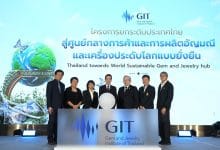MICE industry must prioritise people management to sustain growth

Game-changing People Management was the focus of a recent presentation at the TMX conference, one of the largest fairs dedicated to the meeting, incentive, convention and exhibition (MICE) industry. The discussion highlighted significant opportunities for growth and transformation within this expanding sector.
The MICE industry is on a remarkable growth trajectory, with a projected compound annual growth rate (CAGR) of 6-9% until 2030. This expansion presents a unique opportunity for entrepreneurs to capitalise on this booming market. However, this growth comes with challenges such as high employee turnover and talent shortages, issues that are particularly pronounced in this industry.
Research into the sector revealed that to sustain growth, businesses must shift their focus towards viewing people as their most valuable assets. High turnover rates in the MICE industry are often due to factors like low job satisfaction, lack of empowerment, and excessive workload. Addressing these issues requires a comprehensive approach to employee well-being and development.
The key to overcoming these challenges lies in investing in people — not just through competitive salaries, but by fostering an environment that supports their total well-being. This means creating a workplace where employees feel valued, empowered, and engaged.
One of the best examples of the power of investing in people is Southwest Airlines. Despite facing numerous industry challenges, the American carrier has consistently maintained high employee engagement and a strong organisational culture by implementing several key strategies:
- Empower employees with decision-making freedom and encourage authenticity.
- Involve leaders directly in onboarding and conduct frequent engagement checks.
- Create memorable first days and communicate clear expectations.
- Celebrate achievements regularly and value diverse perspectives.
- Align communication with the brand and maintain transparency during crises.
Employee engagement
These strategies have resulted in enhanced employee engagement, improved customer satisfaction, operational excellence, and financial success. Southwest’s philosophy — happy employees = happy customers = happy investors — demonstrates the power of investing in people.
To prepare for the future, MICE businesses need to adopt a similar approach. Here are some key strategies:
- Emphasise skills over professions: Moving away from rigid degree requirements and focusing on skills-based hiring can expand the talent pool and ensure candidates possess the right capabilities for specific roles.
- Develop key talent traits: Identifying and nurturing key traits such as curiosity, learning agility, grit, adaptability, and resilience can create a high-performing workforce.
- Personalise employee experiences: Tailoring work experiences to individual preferences and needs, including flexible role design, work timing, and customised benefits, can enhance job satisfaction.
- Focus on trust, equity, and inclusion: Building a culture of trust through fair pay, equity, and inclusive practices can enhance employee well-being and foster a resilient organisational culture.
Career paths
Redefine career paths: Shifting from linear career ladders to varied career journeys can accommodate diverse aspirations and promote upward, lateral, and even downward transitions.
Promote holistic well-being: Recognising that employee productivity and satisfaction are contingent on holistic well-being, encompassing physical, mental, emotional, and digital health, is crucial for long-term success.
As the future of people management evolves, it is crucial for organisations to adapt to these megatrends and implement innovative strategies. By focusing on skills, personalisation, trust, and well-being, businesses can not only retain top talent but also drive sustainable growth and success, reported Bangkok Post.
Latest Thailand News
Follow The Thaiger on Google News:


























